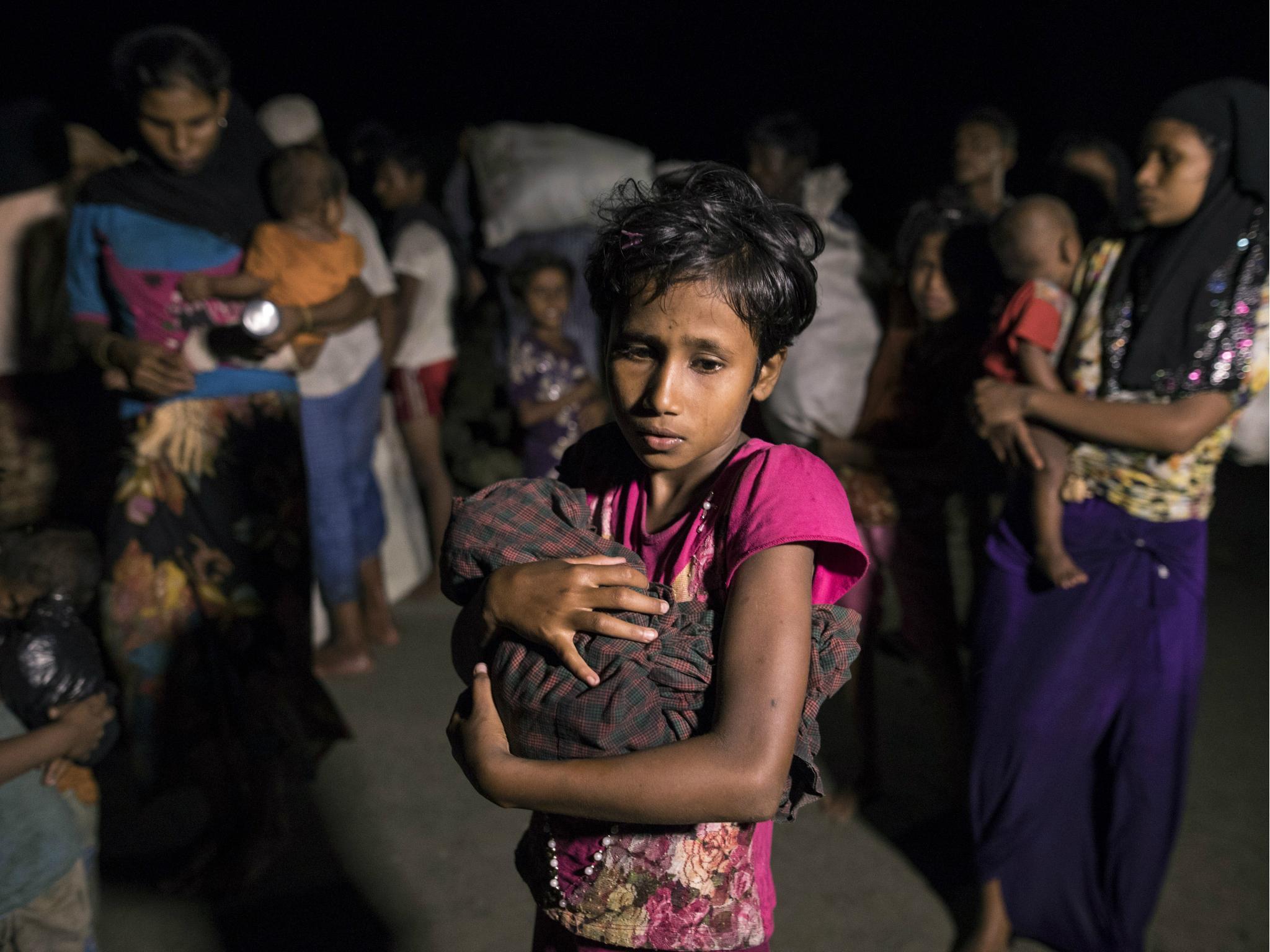Rohingya crisis: Nearly 340,000 children ‘outcast and desperate’ in squalid Bangladesh camps, Unicef warns
'The atrocities against children and civilians must end. We just must keep putting it on the record, we cannot keep silent'

Your support helps us to tell the story
From reproductive rights to climate change to Big Tech, The Independent is on the ground when the story is developing. Whether it's investigating the financials of Elon Musk's pro-Trump PAC or producing our latest documentary, 'The A Word', which shines a light on the American women fighting for reproductive rights, we know how important it is to parse out the facts from the messaging.
At such a critical moment in US history, we need reporters on the ground. Your donation allows us to keep sending journalists to speak to both sides of the story.
The Independent is trusted by Americans across the entire political spectrum. And unlike many other quality news outlets, we choose not to lock Americans out of our reporting and analysis with paywalls. We believe quality journalism should be available to everyone, paid for by those who can afford it.
Your support makes all the difference.At least 340,000 Rohingya Muslim children are living in dire conditions without adequate access to food, water and healthcare in Bangladesh refugee camps, the United Nations Children’s Fund (Unicef) has said.
An estimated one in five children under the age of five are acutely malnourished and requiring medical attention, the organisation added.
Almost 600,000 Rohingya refugees have fled Burma's northern Rakhine state into Bangladesh since 25 August after the military began a campaign in the region.
The Burmese government claims its forces were retaliating against attacks by Muslim insurgents.
But the response has been almost universally condemned by the international community and the UN has accused the Burmese army of a campaign of “ethnic cleansing".
It is the world’s fastest-developing refugee emergency, up to 12,000 Rohingya children are arriving in Bangladeshi camps every week. Many are still traumatised by the atrocities they have seen and suffered, Unicef said.
“This isn’t going to be a short-term, it isn’t going to end anytime soon,” said Simon Ingram, who authored its “Outcast and Desperate” report on the problems facing the refugees.
The majority of Rohingya living in Burma are stateless and fled to Bangladesh without identity documentation, he added. This prevents their reintegration into society.
Mr Ingram said it was "absolutely critical that the borders remain open and that protection for children is given and equally that children born in Bangladesh have their birth registered,” .
He added that there is a chronic lack of clean, safe drinking water and sanitation in the camps and settlements, which poses a severe risk of diseases such as cholera.
“In a sense it’s no surprise that they must truly see this place as a hell on earth,” Mr Ingram said.
The agency is seeking $76m (£58m) under a $434m (£329m) UN appeal for Rohingya refugees for six months, but is only seven percent funded, he said.
UN agencies are still demanding access to northern Rakhine, where an unknown number of Rohingya remain despite reports of villages being burned to the ground.
Earlier this month, the UN labelled Burma’s refusal to grant access to the state “unacceptable”.
“Half a million people do not pick up sticks and flee their country on a whim,“ head of the United Nations humanitarian office, Mark Lowcock said at the time.
He stressed that the scale of the exodus was evidence of a severe crisis in northern Rakhine.
After releasing his report Mr Ingram said Unicef wanted to "repeat the call for the need for protection of all children in Rakhine state."
He said: "This is an absolute fundamental requirement. The atrocities against children and civilians must end. We just must keep putting it on the record, we cannot keep silent.”
Join our commenting forum
Join thought-provoking conversations, follow other Independent readers and see their replies
Comments